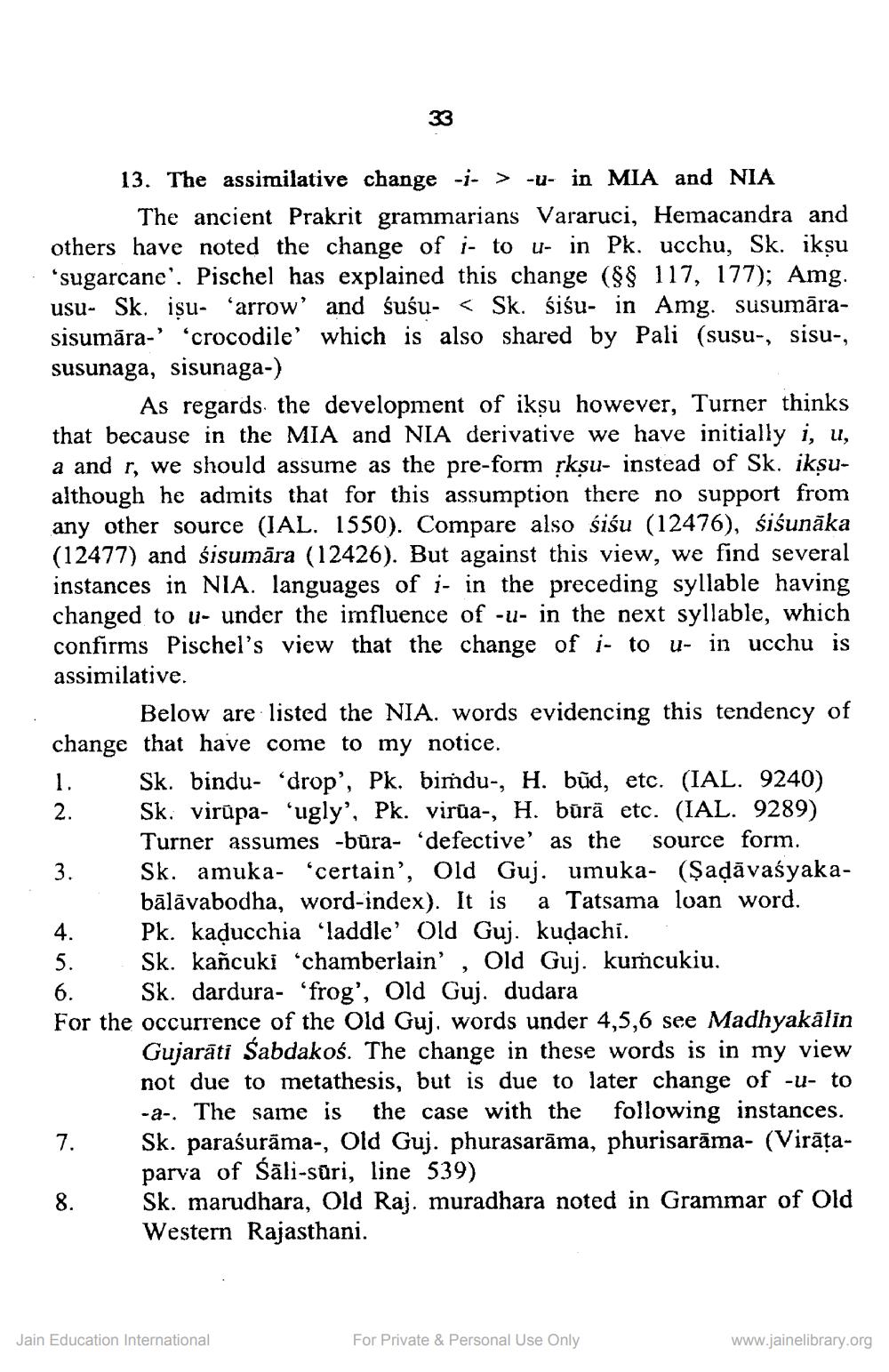________________
13. The assimilative change - - > -u- in MIA and NIA
The ancient Prakrit grammarians Vararuci, Hemacandra and others have noted the change of i- to u- in Pk. ucchu, Sk. ikşu 'sugarcane'. Pischel has explained this change (8$ 117, 177); Amg. usu- Sk. işu- 'arrow' and suśu- < Sk. śiśu- in Amg. susumārasisumāra-' 'crocodile' which is also shared by Pali (susu-, sisu-, susunaga, sisunaga-)
As regards the development of iksu however, Turner thinks that because in the MIA and NIA derivative we have initially i, u, a and r, we should assume as the pre-form skṣu- instead of Sk. iksualthough he admits that for this assumption there no support from any other source (IAL. 1550). Compare also śiśu (12476), śiśunāka (12477) and sisumāra (12426). But against this view, we find several instances in NIA. languages of i- in the preceding syllable having changed to u- under the influence of -u- in the next syllable, which confirms Pischel's view that the change of i- to u- in ucchu is assimilative.
Below are listed the NIA. words evidencing this tendency of change that have come to my notice. 1. Sk. bindu- 'drop', Pk. bimdu-, H. būd, etc. (IAL. 9240)
Sk. virupa- 'ugly', Pk. virüa-, H. būrā etc. (IAL. 9289) Turner assumes -būra- 'defective' as the source form. Sk. amuka- 'certain', Old Guj. umuka- (Şadāvaśyakabālāvabodha, word-index). It is a Tatsama loan word. Pk. kaducchia ‘laddle' Old Guj. kudachi. Sk. kañcuki "chamberlain' , Old Guj. kumcukiu.
Sk. dardura- 'frog', Old Guj. dudara For the occurrence of the Old Guj. words under 4,5,6 see Madhyakālīn
Gujarāti Sabdakoś. The change in these words is in my view not due to metathesis, but is due to later change of -u- to -a-. The same is the case with the following instances. Sk. paraśurāma-, Old Guj. phurasarāma, phurisarāma- (Virāțaparva of Śāli-sūri, line 539) Sk. marudhara, Old Raj. muradhara noted in Grammar of Old Western Rajasthani.
Jain Education International
For Private & Personal Use Only
www.jainelibrary.org




